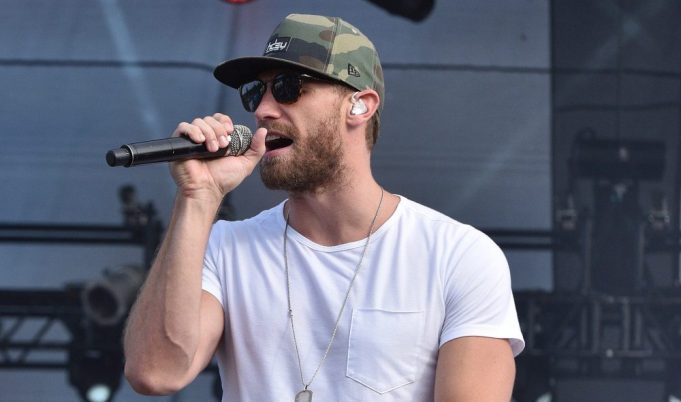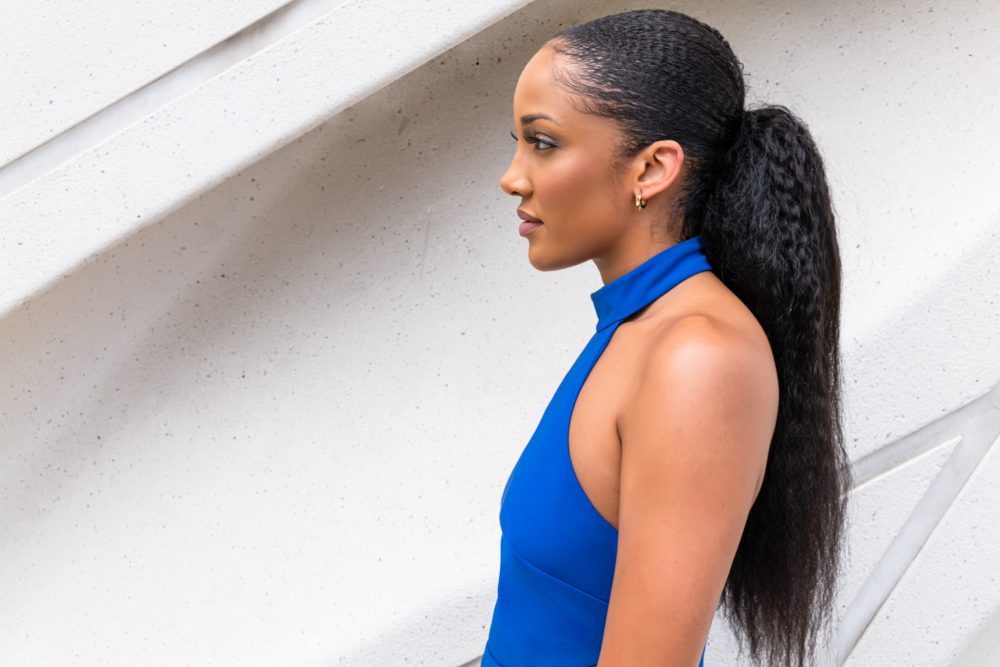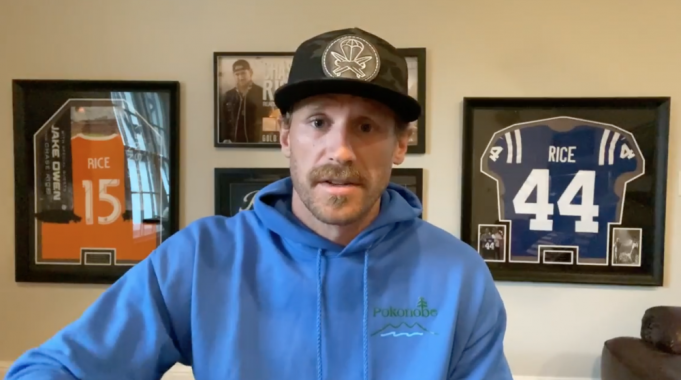Mickey Guyton Asks Country Music Industry and Fans to Imagine Being ‘Black Like Me’ – Variety

As the foremost Black woman in country music — and one who is still waiting to enjoy a big radio hit, despite a series of buzzy singles over the last five years — Mickey Guyton has sometimes felt she faced the “double whammy” of race and gender, to the point where she says she’s often felt like she was “walking on eggshells” in always putting on a friendly face for the genre’s gatekeepers.
But the powerhouse vocalist has found newfound power in outspokenness. In February, she released “What Are You Gonna Tell Her?,” a searing ballad that may be one of the most powerful songs anyone has ever written about systemic sexism. And that was just the tip of the iceberg in Guyton rising to meet the moment this year. Once the Black Lives Matter protests began, she brought out “Black Like Me,” a song she’d been holding back for an upcoming album, to encourage country fans (and the industry, too) to see things through her eyes.
She spoke with Variety from her apartment in Los Angeles, where she’s working on a new Universal Music Nashville release to come out this fall.
VARIETY: You already had what seemed like the most sobering country single of the year when you addressed systemic sexism with “What Are You Gonna Tell Her?” back in February. Then “Black Like Me” really upped the ante.
GUYTON: It wasn’t something I was intentionally trying to do. There was no media strategy to get me to this point. It’s like God aligned all of this; he put this music on my heart. I hope it encourages everybody else to really start singing their truth. To be frank, I was inspired by pop music and how honest they have been (recently) in their music. I had forgotten that feeling, because that’s what made me love country music — because they sang real songs — and was why I wanted to be a part of this genre. Then something happened where everybody only wanted light and fluffy party songs, and it was really difficult for me to find my footing in that. So I just made my own footing.
You were holding on to “Black Like Me” for your album, but you decided to put it out now. What’s the reaction been like?
The response has been quite shockingly big for me. That song was so close to my heart with the things I had been dealing with within the industry, and that I’ve dealt with through my life. There is a lot of pain that I’ve been feeling for a long time, and that I’ve felt unable to talk about because people don’t like uncomfortable conversations. I thrive in uncomfortable conversations, because out of those comes healing, and we can get better. The idea came from a book that I read, “Black Like Me,” that was written by a white man in the 1960s, John Howard Griffin, who darkened his skin through radiation and went to the deep South to see what it was like to be a Black man in America. And this song is just saying: step outside of your shoes for a second and see what it is like to be someone else and then you’d understand. Before I wrote “Black Like Me,” I was already feeling these feelings of sadness, of being within an industry that frowns upon you speaking about injustice happening in society. I’ve felt silenced for a very long time.
Where did you feel the pressure to stay silent coming from?
Part of it was my doing. And part of it was seeing the cancel culture, which started within country music during the Dixie Chicks. When you’re already a woman and already not getting played on radio, the last thing you want to do is say one more thing to stop them from wanting to play you altogether. I felt like I was walking on eggshells a lot. But if you’re speaking the truth in love… I’m not here to shame anybody. I’m just begging people in my industry to want to stand with me and figure this out.
Right about the same time you put out “Black Like Me,” another leading Black country artist, Kane Brown, put out a much more inspirational song having to do with race, “Worldwide Beautiful.” His position in that song and on his social media is that the world would be a better place if we could be color-blind.
I wish that were the truth. I appreciate him trying to write that, but I don’t think everybody is color-blind, or else we wouldn’t be in this position.
The recent protests and increased racial awareness have brought a lot of things into the open. It took this year for the problem with Lady Antebellum’s name to really publicly arise, even though it’d been whispered about for 15 years.
I don’t understand why people in this town just whisper and say these things in (hushed) oohs and aahs and don’t openly just say it. Why aren’t people having these uncomfortable conversations? I know those people’s hearts. Dave (Haywood) is an amazing human being. And if people would have just said something a long time ago, I’d put money on it, that they would have changed it.
There were a lot of sensitive responses to the George Floyd-related protests from country artists. But there were some stereotypical attitudes about the genre that were reinforced, too. One of the first responses from a country star was Chase Rice tweeting: “Yeah, rioting helps.”
Oh, I responded to it (on Twitter). I’m not saying that riots and looting are what you should do when you’re frustrated, when there’s social unrest. However, Chase Rice has benefited from Black culture. That song “Cruise” [that he co-wrote], which Florida Georgia Line recorded, those are R&B melodies and lyrics; he’s made millions off Black culture. Yet he didn’t even say a single word about Black people being marginalized and mistreated. And if you can’t say that Black people have been marginalized and mistreated, but then you can comment on riots, you are a part of the problem. It is my job as a Black woman within this industry, if I see damaging comments like that, to let him and the rest of the world know: If you can first speak about the marginalization of people of color, by all means, have your way — but until you do, you just should continue being silent.
How did you feel about some of the more positive things country artists have said on social media about people of color in the last month or two? Do you feel like it’s real, or is it token?
I would get frustrated when people would post and then add a Bible verse to it. It felt to me that they were trying to cushion the blow, or maybe get people not to say as mean things to them. And in my view, like, Jesus didn’t have anything to do with this! Jesus wasn’t mistreating Black people. Don’t add him into your narrative! That was frustrating for me. But at the same time, I appreciate it — whether the responses were great or not, I was thankful. I needed to see people say something. Because if no one said anything, I don’t know how I could be within the industry and be okay. I needed them to say that Black lives matter because I am Black. I have experienced discrimination. I have been called the N-word within this industry. And if they didn’t say anything — and there are still people that have not said anything, and I know their names and I’m sure you know them too; we all do. We’ve all been watching… If you don’t say something, it’s saying that you don’t care about me. That I don’t belong here is what that says to me. It’s not saying that blue lives don’t matter. It’s not saying that white lives don’t matter. It’s specifically saying that I don’t matter — that’s how it feels, when they say nothing, whether that’s their intention or not.
If there’s heightened awareness of race in country right now, will it last?
I have fear that it’ll go back to our normal scheduled programming. I do have that fear. It’s like when the pandemic first started and everybody was doing Instagram Lives and trying to entertain people in these times of uncertainty, and then it eventually dies off. However, I am still very, very hopeful because there is so much more good than there is bad, and so many people being aware of systemic racism. It doesn’t necessarily mean anybody’s intentionally racist, but the fact that people are now aware of what systemic racism actually is. And I get so many messages from people, that are not just liberal, but saying things like, “I am a conservative woman, and I will not teach my sons how to hate.” That’s a beautiful thing. And the message that was being sent from NASCAR, even though someone still found a way to fly a flag over the races, but people are realizing the pain that that causes. So I do have hope and faith in that, but I am scared.
Your message may seem fairly uncontroversial, but you have not gotten universally positive responses on social media.
Some of the anger I’ve seen [from suggesting that people] say “I support Black lives” … I’ve seen comments like “I’m no longer supporting you.” Why? If I said I support white lives, would you support me? Because I do care about everybody’s life, but right now Black lives a lot of the times are not considered and not cared about as much. And … it’s just heavy. There’s a harsh reality that I’m seeing that has added to my sadness. I knew it was already there, but it’s so blatant and it’s so open. I’ve never understood why people are hanging on to hate. Nobody is hanging Hitler flags around their country, saying that that’s their heritage, you know? Nobody wants to be reminded of that monster who persecuted so many people. who wants that? But for some reason, people in America are holding on to these horrible human beings that tortured and terrorized people.
You grew up in Texas, in largely white neighborhoods. So being part of a genre that is — if we can be so bold to say — known for its whiteness is not an unfamiliar feeling for you.
Yeah, I’m used to it. I would go to all-Black churches on Sundays and then I’d go to an all-white school during the day. It always reminded me of where my place was. I had some of my closest friends in those years. But they didn’t want Black kids to go to that public school — this was in the ‘90s! — and so I went to a private school. My mom was a teacher’s aid so all of my brothers and my sisters could go to this school, and still I experienced… I remember my best friend in school said that her grandma and her mom called Black kids “N—lets.” I got second place in a spelling bee and [someone who placed lower] said, “Ha, well, at least I’m not Black.” At a Christian private school. So, imagine who that person probably is today.
With you being one of the few people of color in country music, it may have been hard for your label, the press and people who support you to know how to deal with that. Is your Blackness something to play up and celebrate, or something to play down because you should be positioned as a typical country artist who just happens to be Black? Maybe this is something people don’t have to be afraid to talk about so much, now that you’ve made it perfectly clear you want to talk about it.
The label is trying to help me and position me; they’re on my side of trying to spark change. But in the same sense, there’s been discussions about, “Okay, what happens if you start getting hate mail? We need to talk about having security for her if she starts getting death threats.” That was a conversation at one point. And that was terrifying for me. Because I didn’t know that talking about my experiences as a Black person who’s American, who is of this country, that there would be so much hate behind that. That is hard for me to comprehend in these times. But also, It’s not even just about my fight as a Black woman in this industry. As a Black person in this industry, I’m also trying to fight for women in this industry, because women in this music business, in country, are getting severely discriminated against. And as someone who knows firsthand what that feels like, it’s such a bigger burden than just the color of my skin. So let that sink in. [She softly laughs.] It’s been very, very heavy for me for a long time.

Country singer Mickey Guyton Mathieu Bitton
Shifting gears — are you actively working on an album during the pandemic?
I am. I’m using this time. I’ve got a great label (Universal Music Nashville) and we figured out how to make stuff work remotely. I am in L.A. [where Guyton lives part-time with her husband], but I have learned how to record with my producer all the way in Nashville. I’ve got my mic, my audio interface and all of the setup that she needs. And I can share my screen, give her control of my mouse and she can conduct a ProTools session on my computer and record my vocals and send them to herself and put them in the track. So it’s been awesome, actually.
So I’m living the dream in my apartment.[Laughs.] I’m asthmatic. So I get really fearful being around people. And then after seeing what happened to D.L. Hughey (who collapsed on-stage at a comedy club in Nashville and then was diagnosed with coronavirus)… I’m really bad with the no-masks thing. Whether it’s that or people saying “All lives matter,” I will be that passive-aggressive person that glares at them.
You were showcasing five years ago and had such good material then, but it was very in the pocket for Nashville, and not nearly as pointed as these songs you’ve released lately. Because it’s taken this long to get material out, are you feeling like you might end up with a different balance of material on your record than you would have?
Yeah. You know, I’ve been recording for four years, just trying to fit into whatever Nashville says they want. And they don’t know what they want. And so I just kind of went back to basics and went back to why I fell in love with country music, because they seemed to always sing about the truth. I don’t feel like there’s a lot of that anymore, but that’s what I started with me trying to do.
I remember five years ago, seeing you do a showcase at a club in L.A., and you had a fun, sexy song called “Pretty Little Mustang.” II always wanted to hear it on a record. But now it’s a little bit difficult to imagine a song that escapist being on the same album as “What Are You Gonna Tell Her” and “Black Like Me.”
Yeah. It won’t work! [Laughs.]
But can you do lighter songs alongside the serious, or do you feel like there has been kind of a fundamental shift in terms of the tone of your material and how you want to have it land when you do have an album out?
I do still have fun songs. I even have country drinking songs. But there’s a message even within that. Like, I have a drinking country song called “Rosé.” Women have some drinking songs, but typically it’s a man. Nobody has a brunch, daytime, “I’m going to sit here and sip my Rosé” type of country song. So it’s still conscious, in the sense of me being a woman and wanting to have a song like that, too. Or I wrote a song called “High Maintenance.” For women, it’s had a negative connotation to be high maintenance, right? It’s a fun song, but my version of it is, “Yeah, girl, be high maintenance. If you’re spending all this time getting dressed, and these guys want to upgrade and have visions of these girls that they see on Instagram, then they need to step it up and treat you [right].” There are still fun songs like that, but there’s always a message within them.
Your image is changing, anyhow. You’d been “the next Carrie Underwood” for so long. But right now, you’re country’s social conscience — its preeminent protest singer. There may be a little whiplash there.
I know. [Laughs.] But I’m a Gemini, so I can switch it up.

